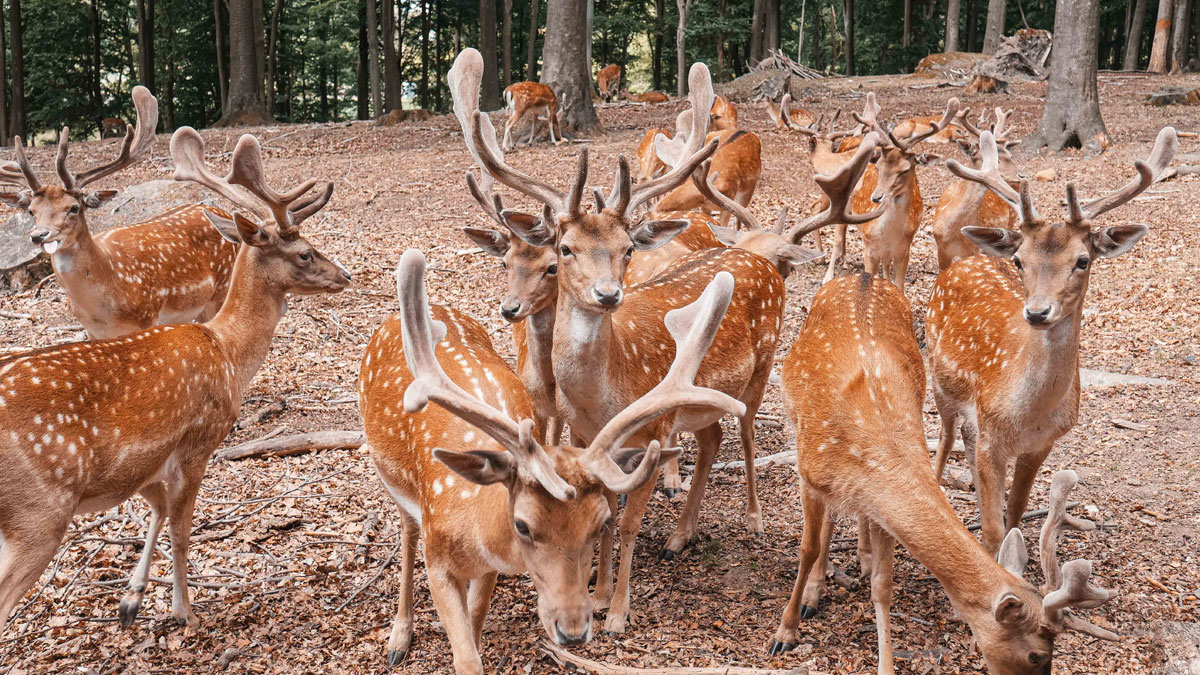Disclaimer: The information on our website is provided for general information purposes only. We make no representations or warranties of any kind, express or implied, about the completeness, accuracy, reliability, suitability or availability with respect to the website or the information contained on our website for any purpose. Any reliance on such information is therefore strictly at your own risk and we are not liable for any damages or losses arising out of or resulting from your reliance on any information contained on our website.
A federal wildlife officer protects and conserves land and wildlife in a designated area. Additionally, they patrol the area to ensure people follow the rules and regulations. These officers may also help with educational programs to increase awareness of conservation and protection efforts. Watch a video to learn what a federal wildlife officer does.
How to Become a Federal Wildlife Officer
According to the U.S. Fish and Wildlife Service, these officers are commissioned law enforcement officers. Also, you must be between 21-37 years of age unless you have prior federal law enforcement or military experience. You also must have either a year of experience in law enforcement, natural resources, or hold a four-year degree in a related field. According to O*Net Online, most hold a bachelor’s degree. For more information, you can visit The U.S. Fish and Wildlife website.
Job Description of a Federal Wildlife Officer
A federal wildlife officer often goes on patrols and these patrols could be by boat, plane, horse, or even foot depending on the area needing to be patrolled. They ensure wildlife, land, and the public do not get into harm’s way and will assist and investigate any accidents that occur to the public or wildlife in the area. Their main purpose is to protect and preserve the natural wildlife in their assigned area.
Benefits of being a Federal Wildlife Officer
Next, let’s learn about the benefits of being a Federal Wildlife Officer. Federal Wildlife Officers find fulfillment in educating the public about the environment and animal safety. They make a meaningful impact by safeguarding wildlife and even saving lives during emergencies. Their dynamic role combines indoor and outdoor work, offering daily challenges and preventing monotony. Additionally, they enjoy comprehensive federal benefits, enhancing the overall appeal of this career.
Federal Wildlife Officer Career Video Transcript
We see wildlife all around us all the time and they see us. You come outside and you might see some deer or even a box turtle out by the lake. You might look up in the sky and see an eagle or osprey. All of these things need to be protected. The U.S. Fish and Wildlife Service, our primary purpose is to conserve, protect the habitat for wildlife. We have to have a type of law enforcement to go about regulating those rules.
A day in the life
This is my office. Coming outside every day, breathing this fresh air. I live on the refuge, I come outside, I take a little lap around just to see what’s going on and then I could deal with anything from helping with a fishing group. Kids that come on the refuge, want to learn about fishing, archery, different things like that, hunting. When I go out on a patrol it can be anything from a vehicle patrol to a foot patrol. On foot patrols, like I said, going out into the refuge, different areas of the woods also different bike paths. Just seeing what’s going on. Introducing myself to different visitors, making sure they’re safe, making sure they’re not lost. Checking hunters as well as fisherman.
And then on vehicle patrol, just making sure that everybody’s going the correct speed limit. We have specific speed limits to make sure that no one hits wildlife I have my trusty GPS that I can just clip on me and I can make sure that I get back to my truck when I need to. 13,000 acres is a lot of woods. You do a few turns around and you don’t know where you’re headed. So I can’t be everywhere, so I have these cameras set up.
These are hunt cams where I can set up on different areas of the border, and I can see what’s going on and they can be my eyes when I’m not around. If you feel the need, that you want to protect the resource and wildlife then the Federal Wildlife Officer would be the perfect line of work for you. I love what I do, it gets me up out of bed every day, and I don’t regret a day of work every. So if you like playing outside right now, imaging doing it when you’re older.
Article Citations
U.S. Fish and Wildlife Service, Refuge Law Enforcement, How Do I Become A Federal Wildlife Officer?.
Bureau of Labor Statistics, U.S. Department of Labor, Occupational Outlook Handbook, Fish and Game Wardens.
National Center for O*NET Development. 33-3031.00. O*NET OnLine.

